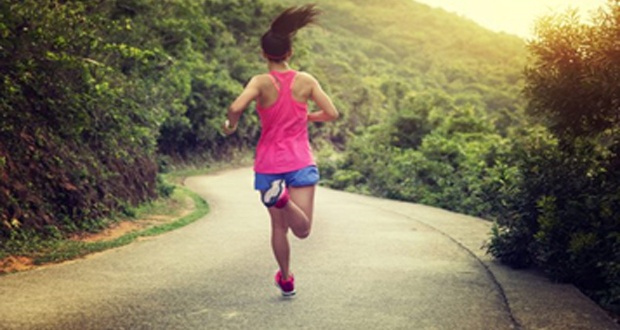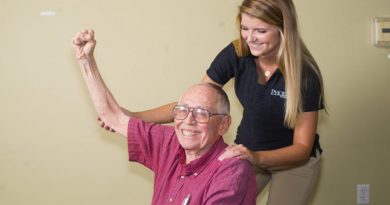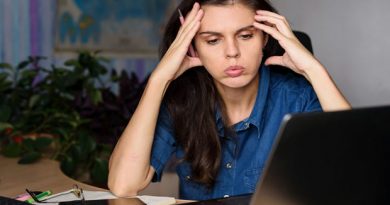How to be safe while running in the times of Corona Virus
While running, the risk of Covid-19 is not only that you might get ill, but that you might infect a high number of other people, including the most vulnerable.
According to Centers for Disease Control (CDC), COVID-19 spreads mainly from person to person through respiratory droplets, produced by an infected person by coughing and sneezing.
READ: Miss the gym? Stream these classes for free
It can spread even during incubation period which may be around 14 days. However, people are most contagious when they are most symptomatic. Virus gets in mainly by inhalation. There is also a high possibility that you can get infected with COVID-19 by touching an object or a surface which is contaminated by the virus and touching your own nose and mouth.
Symptoms may appear 2-14 days after exposure. Fever, cough (mainly dry cough) and shortness of breath are main symptoms, while headache, sore throat and body aches can also occur. Elderly people and those who suffer from immunity disorders, hypertension and diabetes are considered as high risk for infection and to get severe disease.
How can Corona virus outbreak affect you as a runner?
You can continue to run safely and protect yourself and others if you follow the following instructions.
The best way to prevent getting the illness is to avoid being exposed to the virus. Therefore, you have to adhere to the self -protection measures such as:
- Avoiding close contact with people who are sick.
Maintain a distance of at least 6 feet, avoid large gatherings and stay home as much as possible. Social distancing is the key to prevent spread. - Keep your hands clean
Wash your hands with soap and water regularly especially after being in public places, using public rest rooms, using public transport and after you cough and sneeze or blow your nose. Hand washing should be done for at least 20 seconds. You can also use a hand sanitizer with 60% alcohol. - Avoid touching your nose, mouth and eyes unnecessarily.
- Wear a mask if possible especially when in crowded places.
What are the specific things you can do as a runner to be safe?
- Avoid crowded places while running. Always select running tracks routes which are well ventilated.
- Although running with a mask is not necessary, it can be helpful if running in a crowded route.
- Most running races and large events are postponed or canceled, which is a relief. However, do not participate or organize such events until clearance is given in your community.
- If you are a runner who falls into the high risk group (elderly, hypertension, diabetes or immune dysfunction) you have to be extra careful. If so, it is better to use a treadmill at home rather than running outdoors.
- Avoid gymnasiums and use of public treadmills as the equipment can be contaminated with the COVID-19 virus. You never know whether it was used by a symptomatic patient or whether surfaces were disinfected well. Experts say that the virus can remain in the surfaces up to 9 hours.
- Drink plenty of water before, during and after running to keep you well hydrated. Avoid running with a dry throat. Drinking a warm glass of water after your workout helps to get rid of the virus.
- Consume foods which are rich in vitamins and mineral to enhance your immunity. Ex: orange, banana, eggs, nuts, berries, broccoli etc.
- Do not touch your eyes, nose and mouth while running. Do not wipe your face with your hands unnecessarily, even if you sweat.
- If you meet friends while running do not shake hands or give high fives.
- Avoid common rooms and public rest rooms while running as there may be viruses on those surfaces. If you use them while running, wash hands well with soap and water.
- Do not share towels while running as clothes can be contaminated.
- Clean the equipment you carry with you while running, such as your mobile phone and ear phones.
What is the safest way of running at the times of Coronavirus?
It is safe to run in a well- ventilated area as a solo runner and enjoy outdoors. Avoid crowded routes while running. 30 – 60 minutes of running or jogging can help to boost your immune system and keep viruses at bay. Once you come back from running, wash your hands and drink a warm glass of water.
However, if you are sick or if there are sick people at home or at a risk of spreading the virus to others, do not run outdoors.
What should you do if you develop any symptoms suggestive of Corona Virus?
- Do not run although you are a regular runner. Do not run even on your home treadmill as it can worsen shortness of breath and other symptoms.
- Stay at home, call your health care provider
- If you develop coughing and sneezing during running, use a tissue to cover your nose and mouth or inside of your elbow. Discard the used tissues carefully into a trash bin.
- Wash your hands with soap and water or hand sanitizer soon as possible.
If you are a marathon runner, are you at a higher risk of infection by COVID-19?
If you are after a heavy work out or post marathon, your glycogen stores will be depleted. This can reduce the normal functioning of your immune system. If you get exposed soon after your intense running, you are at a higher risk of contracting the disease.
If you are a runner under a lot of physical and mental stress, the risk of infection is also higher as your immunity reduces.
There is a strong connection between regular exercise and having a strong immune system. Therefore, you don’t have to quit running completely. However, gyms are not safe due to gathering of people. By now it is advised to close the gymnasiums as a measure of preventing spread. Be sure to check your local public health recommendations before heading anywhere for a work out.
Should you run in group events or races?
CDC recommends that events that which consist of 50 people or more are cancelled to prevent spread. However, there can be unofficial running events which are not yet cancelled.It is best to avoid these, as your health is more important in a time like this.
Avoid social gatherings and events for the next 14 days as it helps to slow the spread, until the next recommendation is given by health authorities.
How do you protect yourself as well as others from Coronavirus as a runner?
- If you cough or sneeze while running use a tissue or inner side of your elbow to cover your nose and mouth. Discard the tissues to the trash bin.
- Wash your hands regularly especially after sneezing and coughing.
- Do not spit while running and never shoot mucus out of your nose, as spit and respiratory secretions contain viruses.
- If you are sick quit running, stay indoors and seek help.
Why do you have to wash your hands?
Washing your hands with soap and water or alcohol based hand rub kills viruses that might be in your hand. Hands touch many surfaces and can pick up many viruses. Once your hands are contaminated, unnecessary touching of your face can transfer the virus to your eyes, nose and mouth. From there it can enter your body leading to disease.
Why do you have to cover your nose and mouth while coughing and sneezing?
When someone sneezes or coughs, they spray small droplets from their nose and mouth which can contain the virus. If you are too close, you can breathe in the droplets along with the COVID-19 virus. It is identified that the virus stays in the air for about 3 hours.
Why should you follow the directions of your local health authorities?
National and local authorities have the most up to date information on the situation of your area. If you develop symptoms, calling in advance will allow your health care provider to direct you to the right and nearest health care facility. This will protect you and help prevent spread of virus. Stay informed on the latest development regarding COVID-19.
What should you do if you have a travel history?
If you are a runner who travelled recently (within prior 14 days) to areas where high community transmission has been reported (Italy, China, South Korea, Iran, Japan) or if you have a potential exposure, you have to be cautious.
If suspected, testing for COVID-19 is done by a nasopharyngeal swab and sent for RT-PCR (Reverse Transcription Polymerase Chain reaction) testing.
Points of interest…
- From what experts say, so far COVID-19 seems to spread most easily when patient shows symptoms. But it is possible to spread even when symptoms are not shown, but experts do not know how often this happens.
- Experts do not recommend wearing a facemask if you are not sick, unless you are caring for someone who might have Corona infection.
- There are no specific clinical features which can yet reliably distinguish COVID-19 from other viral respiratory infections.
- Most common clinical features at the onset of illness are: fever (99%), fatigue (70%), dry cough (59%), shortness of breath (31%)
- There is no specific treatment or vaccinations available yet. They are still under research.
Should you be worried?
- According to UpToDate website, most people have mild symptoms (about 80%) and some have no symptoms at all. So far the death rate from COVID-19 is around 2%.
- If you are anxious about COVID-19, keep in mind that most people do not die from it or get severe illness. But it helps to be prepared and follow the recommendations to lower your risk and help slow the spread of virus. Do not panic as unnecessary anxiety and stress can lower your immunity.
If you are a regular runner, be happy that you are fit and healthy than your sedentary counterparts and your immunity will be definitely strong, which can help you immensely in fighting Corona virus outbreak.
Go here to visit the Topeka Health and Wellness Facebook page for local event notices, news and local announcements. To help us spread the word, and to continue seeing our posts on your Facebook feed, “Like” the page and then like or share a story now and then, so that they will keep showing up in your feed.





